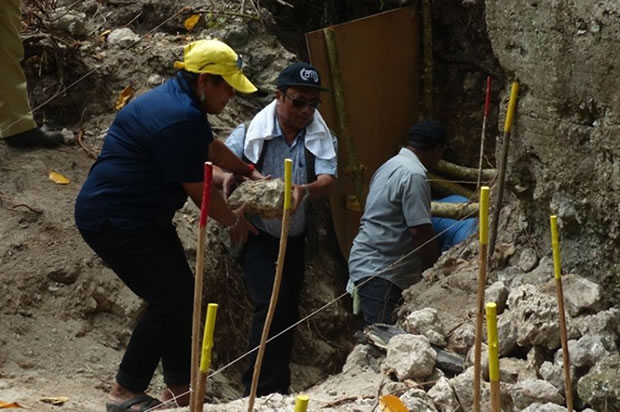Palau island has begun to excavate hundreds of miles of secret cave networks in which Japanese troops hid and died during the war.
The Emperor of Japan is due to head to Palau to attend commemoration ceremonies and remember all of the soldiers who died in the conflict.
The Battle of Peleliu (as the island was known at the time of World War Two) was a huge battle between Japanese and US forces at the end of 1944. The US Army invaded the Japanese occupied- island so that they could take control of an airstrip from which they could launch air bombing campaigns in the region. It was also part of the US military strategy to take island by island from the Japanese troops and gradually make their way up to the Japanese mainland.
The mission to attack Japanese troops on Peleliu was known as Operation Stalemate 2 by the US military.
Major General William Rupertus commanded the 1st Marine Division to take the island and he predicted it could be done in just four days. Japanese troops were, however, well-prepared and caused a larger battle than the Americans had predicted. The US finally took control of the island after two months of fighting. Both sides suffered huge troop losses and exceeded all battles in the Pacific up to that point.
Palau’s President Tommy Remengesau Jr and the island’s state governor, Temmy Shmull, attended the first cave opening. The caves had been sealed after the war and haven’t been opened since, as they were declared a war grave site.
The process so far has been long and difficult with excavators having to dig and recover all the artefacts and remains, the Radio Australia reports.
The battle remains a controversial one even to this day, since many believe the island had little strategic value to the overall US military strategy and because the battle incur such a high casualty rate. It is also thought that the Japanese troops on the island lacked the numbers and equipment to interfere with US operations. After the battle, the airfield on the island also did not play as large a part in launching bombing raids in the region as had been expected.
